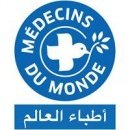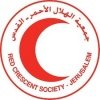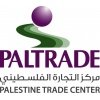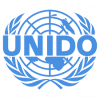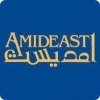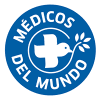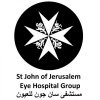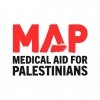Final evaluation of the Mental Health and Psychosocial Suppo...
الوصف
Conducting final evaluation of the Mental Health and Psychosocial Support (MHPSS) Project in the West Bank and Gaza Strip, Palestine.
- Context Background
Médecins du Monde has been working in the occupied Palestinian territory (oPt) since 1996. Nowadays, MdM is present in the country through three chapters (Suisse, Spain, France) and works in the West Bank and Gaza Strip. Within this framework, MdM has been implementing a project in both the West Bank (WB) and Gaza, funded by the German Federal Ministry for Economic Cooperation and Development (BMZ). The project is carried out in coordination with the Ministry of Health (MoH) in both Gaza and the West Bank, as well as with AWDA Health & Community Association (AWDA) in Gaza. The goal is to achieve efficient and sustainable integration of Mental Health (MH) services within Primary Health Care Centers (PHCCs).
This is accomplished through various means: One approach involves local partners providing individual counseling to beneficiaries (BNFs) and conducting group awareness sessions on various mental health topics. Additionally, our MdM teams offer training and supervision to primary health care (PHC) staff to enhance their technical skills and improve identification of mental health cases. This supports better access to these services in an appropriate manner.
The Ministry of Health (MoH), through the Mental Health General Unit, has been actively working to integrate MHPSS (Mental Health and Psychosocial Support) services at various levels within the public health system. This effort is evident in the implementation of the WHO mhGAP initiative across different Primary Health Care Centers (PHCCs) in Gaza Strip governorates and some PHC facilities in the West Bank (Qalqilya). Effective integration requires additional support for expanding capacity building processes, incorporating standardized tools and methodologies, ensuring availability of trained health teams, and improving data management through supervision. However, recent events such as Covid-19, the Gaza war, and increased Israeli occupation in the West Bank have posed new challenges, impacting project activities. As a result, the project has been extended, and its completion is now scheduled for August 2024.
The project’s title is under “Reinforcing the access to Mental Health services in Palestinian Occupied Territory: Key interventions to strengthen individual and community resilience in a protracted crisis”.
In this context, the main objective is to ensure the integration of high-quality Mental Health and psychosocial support (MHPSS) services into the package of services delivered by the Ministry of Health at Primary Health Care Centers (PHCCs) in the governorates of Qalqilya in the West Bank (WB) and the targeted governorate in the Gaza Strip. This includes improving case management protocols for MHPSS patients, enhancing the referral pathways between services, and improving the accessibility and acceptability of MHPSS services by reducing stigma and misconceptions about mental health within the community.
Results of the evaluation will be used to enrich the program implementation as well as ensure continued relevance and effectiveness of the MDM interventions considering future opportunities to implement similar programs. The results will be shared and socialized with the stakeholders and MDM-F heads of programs involved (Medical, MHPSS, Meal officers and Field Coordinators for WB and Gaza as well).
These Terms of Reference (ToR) outline the expectations regarding the scope of the evaluation process, the roles of stakeholders, the obligations of the evaluator, and the key questions to be answered through the assessment. This will enable the development of a work plan aligned with clear objectives and activities, ensuring the project evaluation meets its expected outcomes.
- Evaluation Objectives.
- Evaluate the overall impact of the MHPSS activities implemented by MDM teams across all intervened Primary Health Care Centers (PHCs), considering methodology applied, activities undertaken, trainings provided, case management protocols, referral pathways, accessibility and acceptability, stigma and misconceptions challenges encountered and addressed, opportunities raised with direct coloration to MHPSS indicators.
- Identify strengths and areas for improvement in implementing the Mental Health and psychosocial support component phases proposed for integration with PHCs (Screening, assessment, referral mechanisms, and closure processes).
- Emphasize conclusions drawn from information provided in the BMZ1 proposal: Project reports, data collection, training evaluations (pre-tests, post-tests, and material implementation), and other relevant project materials.
- Collect feedback directly from health staff at PHCCs where training were conducted regarding the intervention's effectiveness, their experiences, and needs. This ensures their perspectives are integrated into project implementation and serves as lessons learned for future proposals.
- Determine if there has been an improvement in the quality of mental health and psychosocial support care provided by staff who received training, based on follow-up and supervision by the MDM team.
- Scope of work.
The evaluation will include the following components:
- Review existing documentation related to the BMZ1 Project: Reports (monthly reports, Sitreps), KAP (Knowledge, Attitude, and Practice) survey outcomes, case management based on the mhGAP training, cases referred through referral systems, on job trainings, awareness sessions (considering the topics, objectives and contents), cases conferences handle by the MdM staff involved under BMZ1, satisfaction survey (from the BNFs to the activities), feedback and complain mechanism (FCM provided from the Ministry Of Health to MdM).
- Conduct stakeholder consultations (Qalqiliya Governorate Director, Ministry of Health and Mental Health Unite directors) and key informant interviews (KIIs) at the PHC’s level (24 PHC’s) to gather insights on the effectiveness and relevance of the interventions.
- Conduct Focus Group Discussions (FGDs) will be conducted in different levels: With the staff health doctors, nurses and personal who received the trainings from MdM Staff (69 persons). With the MdM-F staff as well (1 Mental Health Doctor, 2 Psychologists and 1 Social worker) who are part of the proposal implementation. Moreover, with some beneficiaries who participated in the activities. The main objective is to assess the implementation of the activities under the program, considering in this way the different viewpoints according to the roles each one plays.
- Analyze the data based in the internal data collect, external information with different sources of verification (SoV) as Health Cluster Dashboard (as Source of Verification to complement), to identify trends, challenges, and opportunities for improvement.
- Provide bi-weekly updates (30 minutes) on the work plan to track progress.
- Provide a report (mid-term review) that allows alignment with expectations and the activities being implemented after 2 months, considering the feedback provided in the previous bi-weekly meetings.
- Methodology
In consultation with key program and technical staff who were involved in the implementation of the activities (Staff health: 69 and MDM Staff: 5 persons) the consultant/firm will be responsible for defining the parameters of the evaluation, including the finalization of an evaluation plan to be shared with MdM coordination team according to the established timelines and working plan. The assessment will employ a mixed-method approach, including qualitative and quantitative methods. This will include surveys, interviews, focus group discussions, observations, and document analysis. Key activities include, but are not limited to:
- Desk review: MdM will provide the consultant/firm with all relevant proposal documents (narrative, framework, and target groups).
- Development of a detailed inception report and comprehensive work plan as detailed on the last page, including what needs to be completed and attached as part of the proposal for consideration.
- Construction and validation of the Survey Protocol:
- Identification of the target population and key informants.
- Development of questionnaires, focus group discussions (FGD), and key informant interview (KII) guides (these guides and questionnaires should be updated in consultation with MdM program staff).
- Coding of questionnaires.
- Selection and creation of data entry and analysis tools.
- Development of a schedule and team deployment plan.
- Implementation of the survey through face-to-face assessments conducted by trained professionals, ensuring quality control mechanisms for accurate assessments.
- Analysis of findings and presentation of the report: The consultant/firm will analyze the findings and draft the final report. The report should clearly depict the relevance and effectiveness of the BMZ1 proposal implementation and provide recommendations for future proposal adaptations.
- Deliverables
The consultant(s) conducting the evaluation will be expected to deliver the following:
- Inception report detailing the methodology, work plan, and evaluation timeline.
- Draft evaluation report presenting findings, analysis, and initial recommendations.
- Final assessment report incorporating feedback received on the draft report, including a summary of key findings, conclusions, and actionable recommendations. This report should include specific, realistic, and achievable recommendations.
- Handover notes and electronic versions of collected data to be shared with MdM. All data must be provided electronically, and all field assessments remain the property of MdM.
- Evaluation Timeline
The expected timeline for evaluation completion is planned from August till November 2024.
The consultant/firm should include in their proposal a detailed timeframe with clear schedule for deliverables along with all the proposed tools, allocating sufficient time for review by MdM before delivering the final version of the report by the end of November 2024.
- Qualifications
- The consultant/firm conducting the evaluation should have expertise in Mental Health and Psychosocial Support (MHPSS) and evaluation methodologies, especially in group activities such as trainings and awareness sessions (at least 3 years).
- The consultant/firm is expected to demonstrate that it has a track record of not less than three (3) years of experience carrying out similar surveys in similar set-up with diverse geographic and group compositions.
- The consultant/firm should also list the scale of similar projects worked on in the past.
- Previous experience in similar evaluations in humanitarian settings is highly desirable.
- In addition, the consultant/firm is expected to display high sensitivity to conflict-affected settings and diversity issues, good interpersonal, administrative and management skills.
- Knowledge of the project area (Nablus) and knowledge of the local language(s) will be highly valued.
- Preparation of a technical and financial proposal
If the consultant/firm qualifies to the above requirements, please to prepare a technical and financial proposals that should include, at minimum, the following:
- Your availability to conduct the corresponding evaluation will be evidenced by your time commitment and logistical readiness for this purpose.
- A brief introduction of bidding consultant/firm or person attaching relevant CVs. The proposed survey team members must, at minimum, possess the qualifications and experience indicated above.
- The technical proposal shall provide a description of the consultant/firm including an outline of the consultant/firm’s recent experience on similar undertakings. Provide the profile of each of the assessment team members including an outline of the members’ recent experience & duration of involvement on assignments of work of similar nature.
- Proposed methodology and approach, including a detailed timeframe with a clear schedule for deliverables along with all the proposed tools. Is important to highlight that the timeframe must be concrete in terms of activities, tools and deadlines.
- Proposed work plan and budget (Should express all proposed costs in American Dollar or Euros). The financial proposal should list itemized details of costs associated with the assessment and include all costs associated with conducting the assessment, including consultancy fees, travel expenses, data collection tools, and any other relevant expenses. Providing a budget centered around monthly activities and the time allocated to them would be highly appreciated. Similarly, if a package of services for 4 months is provided instead of hourly rates.
- Attachment of all supportive documents with the proposal is required.
MdM will provide at no cost to the consultant/team:
- Transportation to the field.
- Space at MdM Offices to hold meetings/presentations with MdM key staff and Coordination Team members when needed or required.
- Relevant project documents as deemed necessary.
The consultant/firm must comply with MdM rules and procedures related to security, confidentiality, and relations with the media. The consultant/team must respect the ethics related to evaluation practice under MdM Code of Conduct. Security would be provided and organized by MdM team in the case of an international consultant; and the consultant/team must comply with security rules established. For a national consultant/team, they will be the sole responsible for their own security.
9. Contract and payment.
Upon the signature of the contract, the consultant/firm will receive the 30% of the total consultancy instalment, 30% of the total consultancy instalment will be received upon the delivery of the first draft and annexes of the final report, the remaining 40% of the total consultancy instalment will be paid after the review and approval of the final report and its related annexes by MdM team.
10. How to apply
If you feel you/your organization fit the required profile and are available for the assignment, please submit your proposal with all the required supportive documents as specified above.
All technical proposals and supporting documents including the detailed budget need to be submitted before 10th of Aug, specifying the subject: BMZ1 External Evaluation.
The documentation will be sent to the following emails: [email protected] with CC [email protected]
مكان تنفيذ الخدمة
نابلس
موعد الإنتهاء
10, Aug, 2024
شارك هذا العطاء




